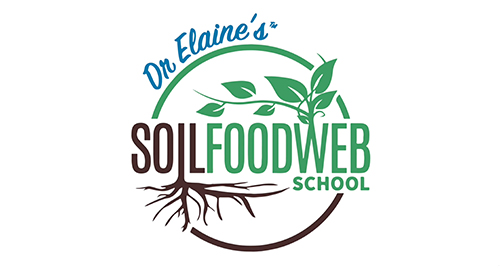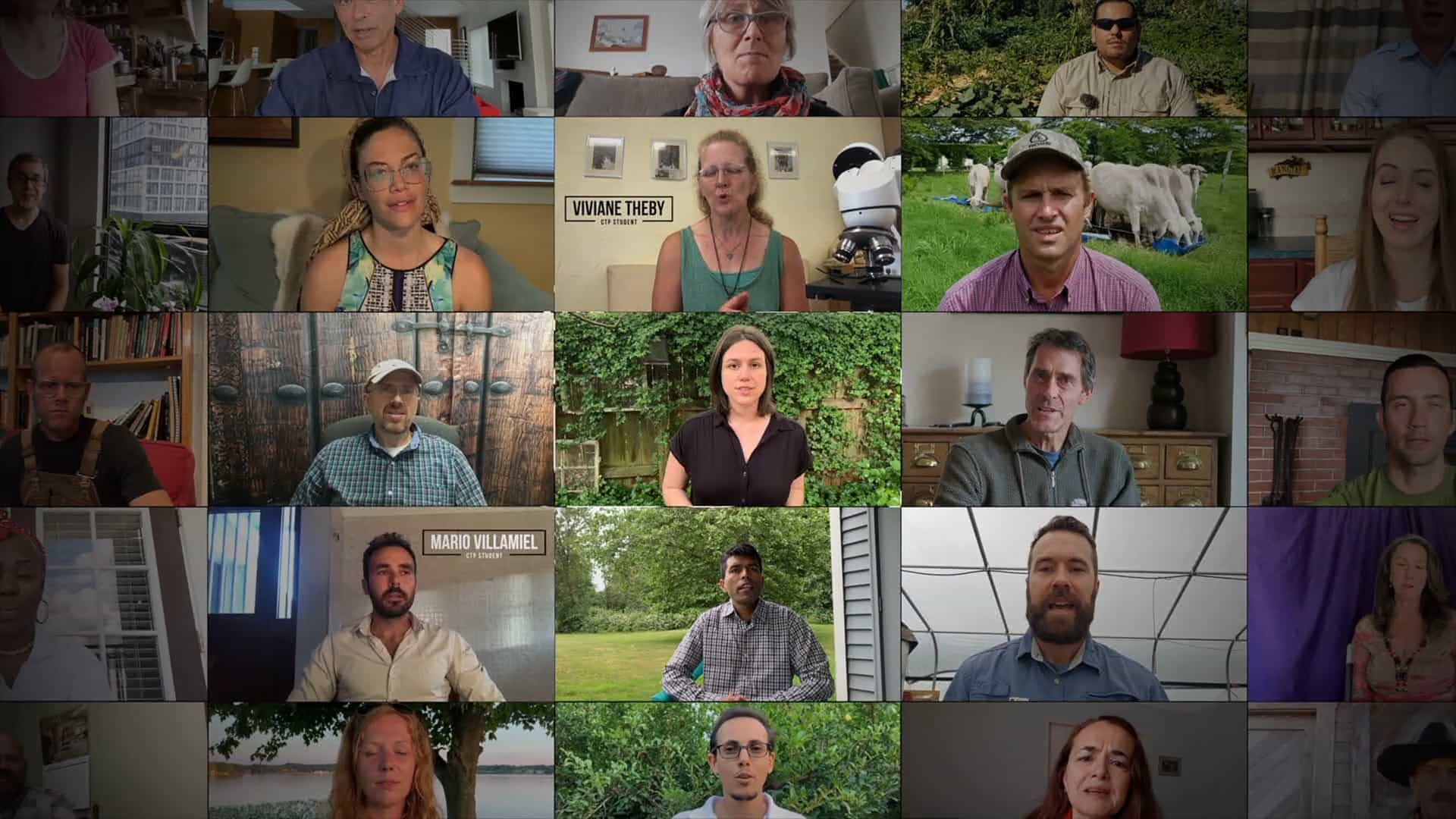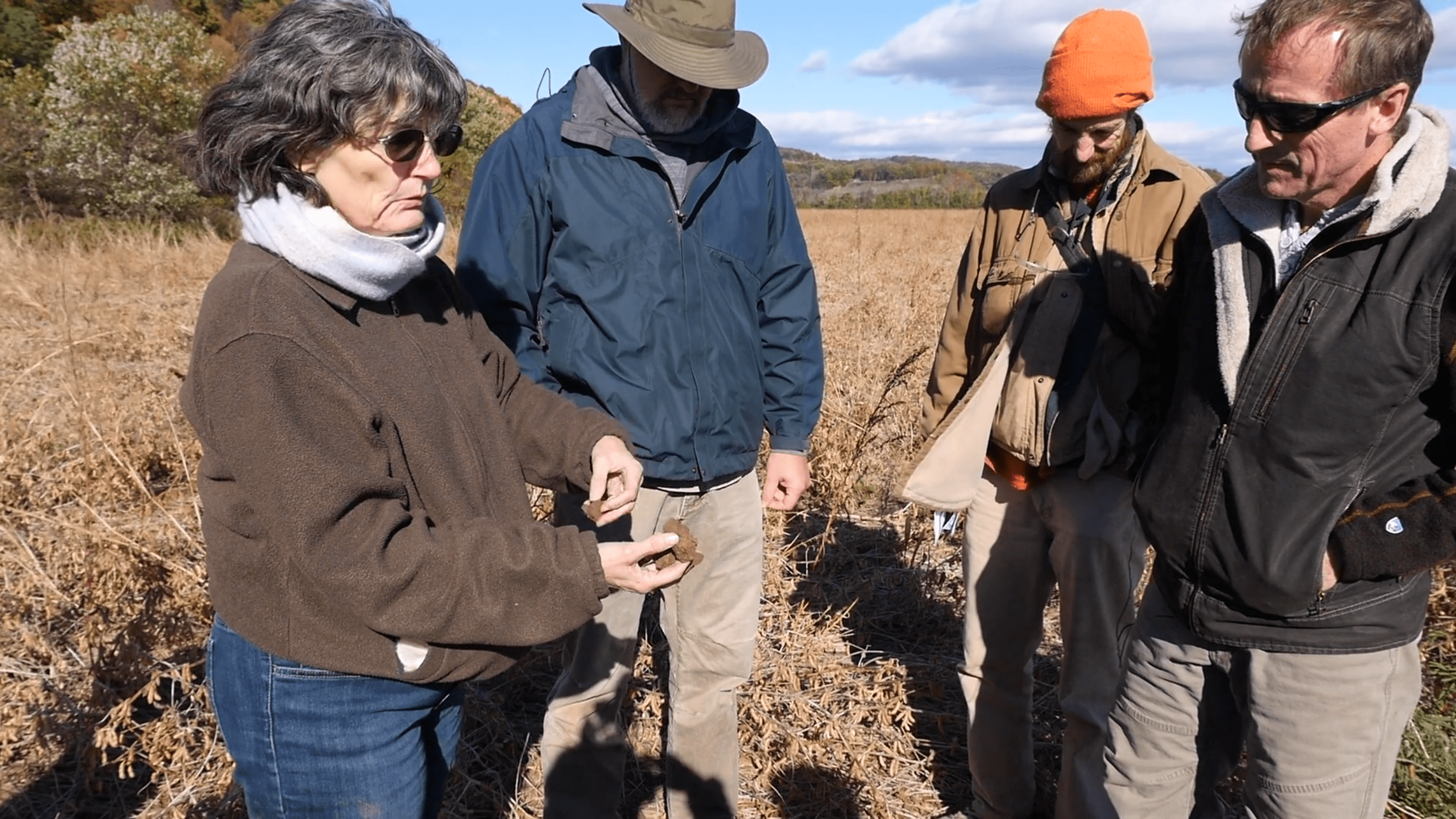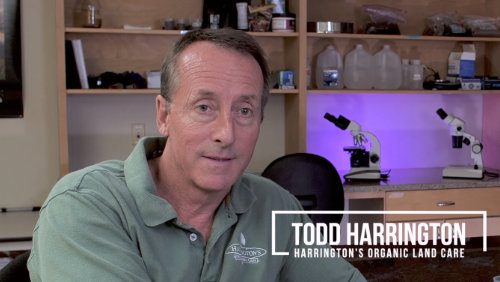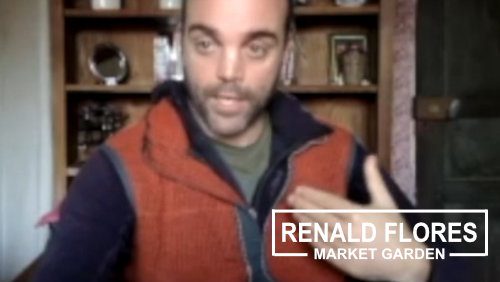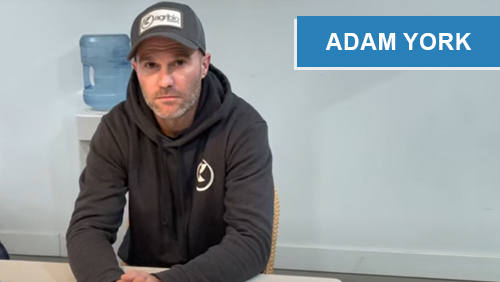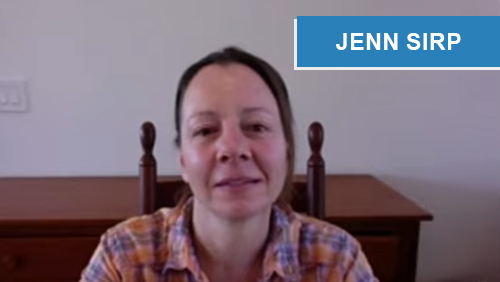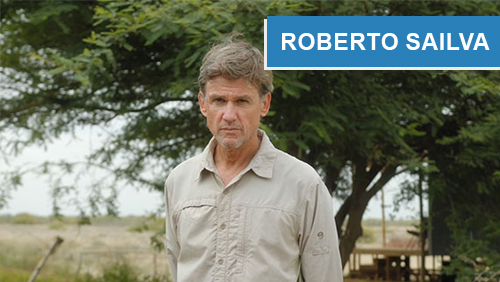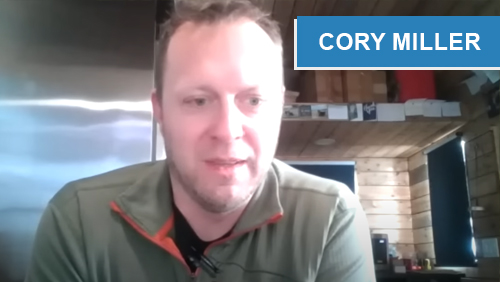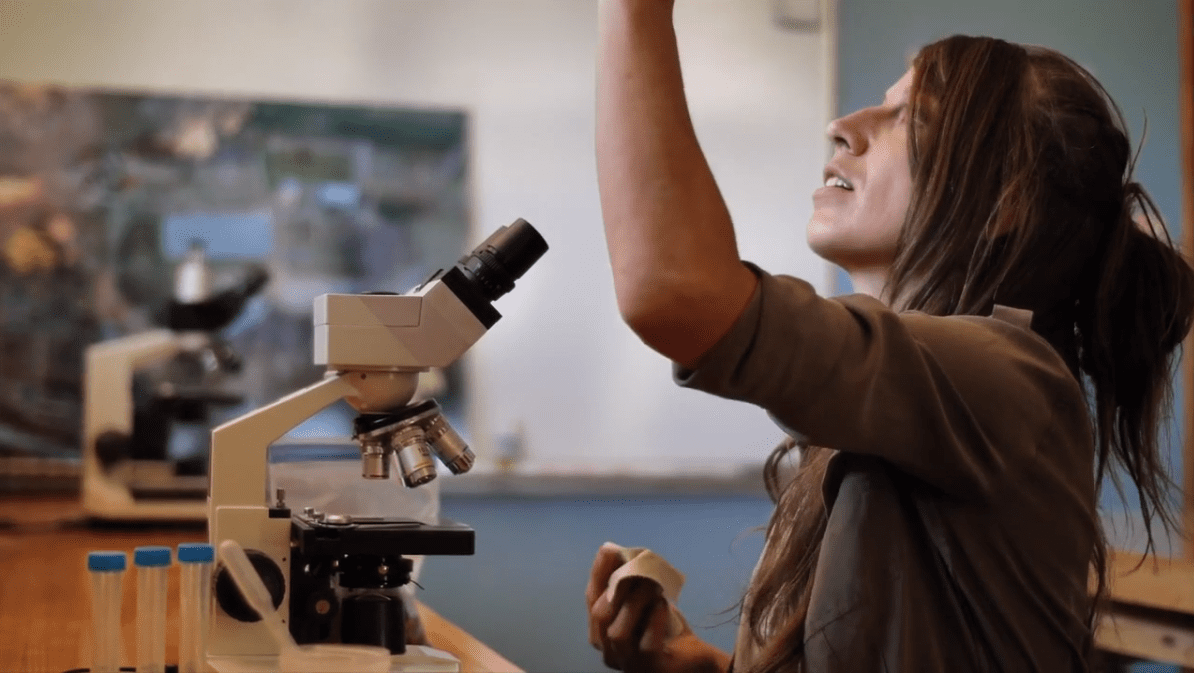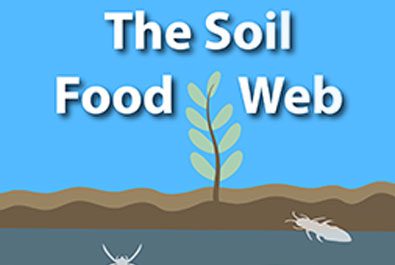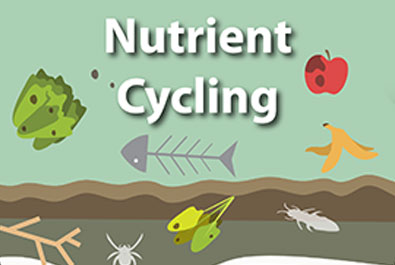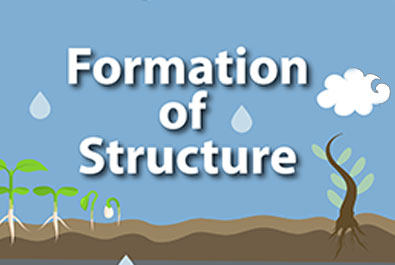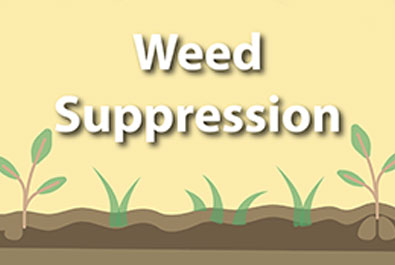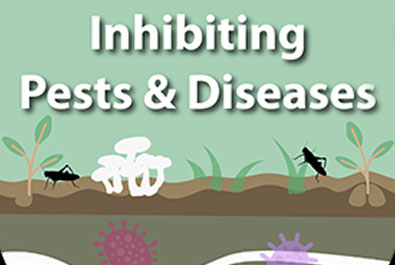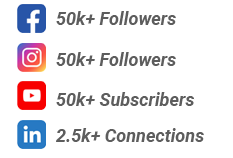Your journey into rapid soil regeneration starts now!
Unearth more. Keep reading.
Unearth more. Keep reading.
YOU'LL GET
Private Student Forum
You’ll get access to the Foundation Courses Forum where you can connect with other students and your questions will be answered by the SFWS Faculty and Dr. Ingham.
Monthly Student Webinars
You can attend monthly Q&A webinars with members of our highly experienced faculty, Dr. Ingham, and prominent guest speakers.
One-on-One Mentorship
In Stage 1 of the CTP/GTP, students are assigned to a highly trained mentor who will help you develop your microscopy skills to the level needed to become a Certified Lab-tech. Your mentor also will guide you towards mastering the art of making BioComplete ™ Compost.
Free Listing On Our Website
Upon successful completion of your microscopy training and assessment, which is part of Stage 1 of the CTP/GTP, you’ll get a free listing in the directory of Certified Soil Food Web Lab-Techs on our website.
Curriculum
THEORY + PRACTICE
Kickstart Your Soil Package
Study the science and application methods behind the Soil Food Web Approach in the Foundation Courses, then work with one of our highly-skilled mentors to create your own biological compost and master the microscope.
Once you’ve successfully completed this program, you will:
- Be certified as a Soil Food Web Lab-Technician, so you can use the microscope to assess the biology in your compost and in the soils of the farms in your region.
- Have the skills required to produce BioCompleteTM Compost that can be used to rapidly restore the soil biome.
- Be well on the way to becoming a successful Soil Food Web Consultant, Lab-Tech, or Compost Producer.
Included in the Kickstart Your Soil Package
The Soil Food Web Foundation Courses
Foundation Course 1: Introduction to the Soil Food Web
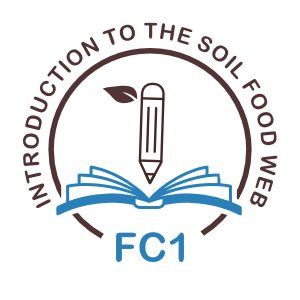
In Foundation Course 1 you will learn:
- About the damage that modern agriculture has done to soils all over the world.
- How Regenerative Agriculture is the soil-ution and how you can rapidly regenerate your soils with the Soil Food Web Approach.
- How the Soil Food Web Approach can be adopted on any scale and in almost any environment, with a multitude of crops.
- About the 4 major groups of Beneficial Microorganisms that are needed to restore ecosystem functions to your soil.
- How Beneficial Microbes work in harmony with your crops to nourish and protect them.
- How benefits such as increased yields, reduced erosion, reduced pest, disease and weed pressures etc. can be achieved.
- About several projects from around the world that Dr. Elaine Ingham has worked on personally.
- About some of the management practices you can adopt to ensure that the biology in your soils is not compromised.
- How soil structure is created by beneficial microbes, improving water infiltration in clay soils and better water retention in sandy soils. And how good structure enables plants and beneficial microbes to penetrate deep into the soil profile, improving plant health.
- How beneficial microbes access the abundance of nutrients stored in the parent material (think sand and clay particles) and how this is then made available to your plants.
- How plants influence the soil biome, by releasing sugary exudates that feed specific groups of beneficial microbes, in return for nutrients.
- How having a balanced soil biome can result in great benefits, such as Weed Suppression and Increased Carbon or Organic Matter content.
Foundation Course 2: Making BioComplete™ Compost
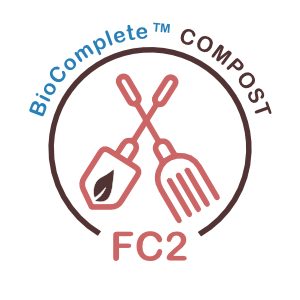
In Foundation Course 2 you will learn:
- About the different definitions of compost and why we consider it as a means of multiplying beneficial microbes instead of just a way of delivering nutrients to the soil.
- How to make your own Biological Compost, using Dr. Elaine’s close-control composting method that enables beneficial microbes to multiply rapidly, while suppressing detrimental microbes.
- Techniques that can be used to balance the biology in your compost, ensuring that the 4 main groups of microbes are present.
- How to apply Biological Compost to your soils so that beneficial microbes can interact with your plants in the root zone, offering nutrition and protection.
- About the various types of methods and equipment that can be used to produce Biological Compost, depending on scale. This includes vermicompost and hot-composting.
Foundation Course 3: Making BioComplete™ Extracts and Teas
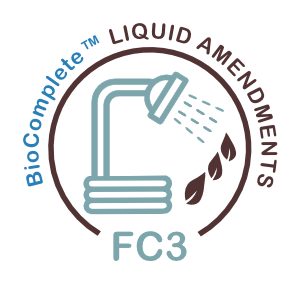
In Foundation Course 3 you will learn:
- How to produce Biological Extracts and Teas from your Biological Compost, using different types of equipment depending on the scale you are operating at.
- About the uses and application methods of Biological Extracts and Teas
- How to apply Biological Liquid Amendments to your soils using different equipment, depending on the scale of your project. And how you can use conventional spraying equipment with some minor modifications.
Foundation Course 4: Introduction to Microscopy
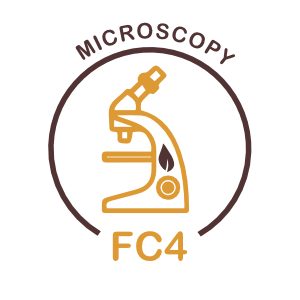
In Foundation Course 4 you will learn:
- How to correctly set-up and use a compound microscope.
- About the biological morphology of the 4 major groups of beneficial soil microorganisms.
- How to identify and quantify the key groups of beneficial microbes that all soils need in order to be fully functional, using the compound microscope. This will enable you to conduct your own soil biology assessments.
- How to process and interpret data.
- How to recognize microarthropods, algae, pollen and other objects in your soil.
After successful completion of the Foundation Courses, you can choose between one of these
FREE BONUS COURSES
Dedicated Mentoring
Compost and Microscopy Mentoring (Stage 1 of the Consultant Training Program)
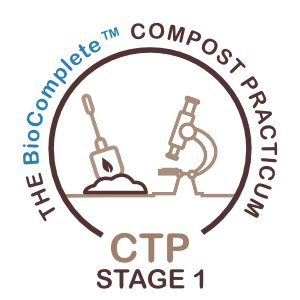
What You Will Learn
- You’ll be assigned to one of our highly trained Mentors who will guide you as you work towards mastering the art of making BioComplete™ Compost using the techniques you have studied in the Foundation Courses.
- You will also work 1-on-1 with your Mentor to develop your microscopy skills to the required standard to become a Certified Soil Food Web Lab-Tech.
- You’ll learn from the experience of others as your Mentor will be able to advise you on common mistakes to avoid, when making your compost.
What’s Included
- 26 hours of total Mentor Time dedicated to helping you to make your own Biological Compost and Master the Microscope.
- Free listing in the directory of Certified Soil Food Web Lab-Techs, once you pass the Microscopy Proficiency Assessment (MPA).
- The Guide to Making Small Scale BioComplete™ Compost manual.
- The Certified Lab-Tech Program (CLP) Course Manual.
- The Launch Your Lab Guidebook.
Compost and Microscopy Mentoring (Stage 1 of the Grower Training Program)
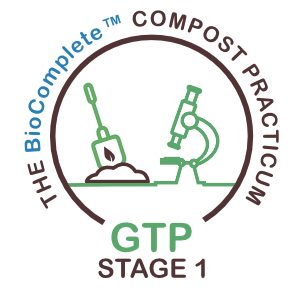
What You Will Learn
- You’ll be assigned to one of our highly trained Mentors who will guide you as you work towards mastering the art of making BioComplete™ Compost using the techniques you have studied in the Foundation Courses.
- You will also work 1-on-1 with your Mentor to develop your microscopy skills to the required standard to become a Certified Soil Food Web Lab-Tech.
- You’ll learn from the experience of others as your Mentor will be able to advise you on common mistakes to avoid, when making your compost.
What’s Included
- 26 hours of total Mentor Time dedicated to helping you to make your own Biological Compost and Master the Microscope.
- Free listing in the directory of Certified Soil Food Web Lab-Techs, once you pass the Microscopy Proficiency Assessment (MPA).
- The Guide to Making Small Scale BioComplete™ Compost manual.
- The Certified Lab-Tech Program (CLP) Course Manual.
- The Launch Your Lab Guidebook.
Kickstart Your Soil Package
What's Included:
- $1,180 OFF Foundation Courses
Normally $5,000 - FREE BONUS: The Consultant or Grower Training Program – Stage 1
Normally $1,540
$6,540
$3,920
Over 40% off

You’ll get a 30-day, no questions asked, money-back guarantee on the total price paid. The only condition is that you have watched fewer than 32 lectures of the Foundation Courses.
Pay in Full
BUY NOW(One payment of $3,920)
Monthly Payments
(U.S. Residents only)
Monthly Financing as low as 0% APR*
*Rates from 0% APR or 10-36% APR. Payment options through Affirm are subject to an eligibility check and are provided by these lending partners: http://affirm.com/lenders. See http://affirm.com/licenses for important info on state licenses and notifications.
Kickstart Your
Soil Package
What's Included:
- $1,180 OFF Foundation Courses
Normally $5,000 - FREE BONUS: The Consultant or Grower Training Program – Stage 1
Normally $1,540


*Rates from 0% APR or 10-36% APR. Payment options through Affirm are subject to an eligibility check and are provided by these lending partners: http://affirm.com/lenders. See http://affirm.com/licenses for important info on state licenses and notifications.
Unearth more. Keep reading.
Modern Agriculture and Our Soils are Facing a Crisis
Despite agriculturists spending more and more money each year to improve soil fertility and protect their crops, the farming community, growers, landscapers, arborists, land stewards, and gardeners still face huge challenges.
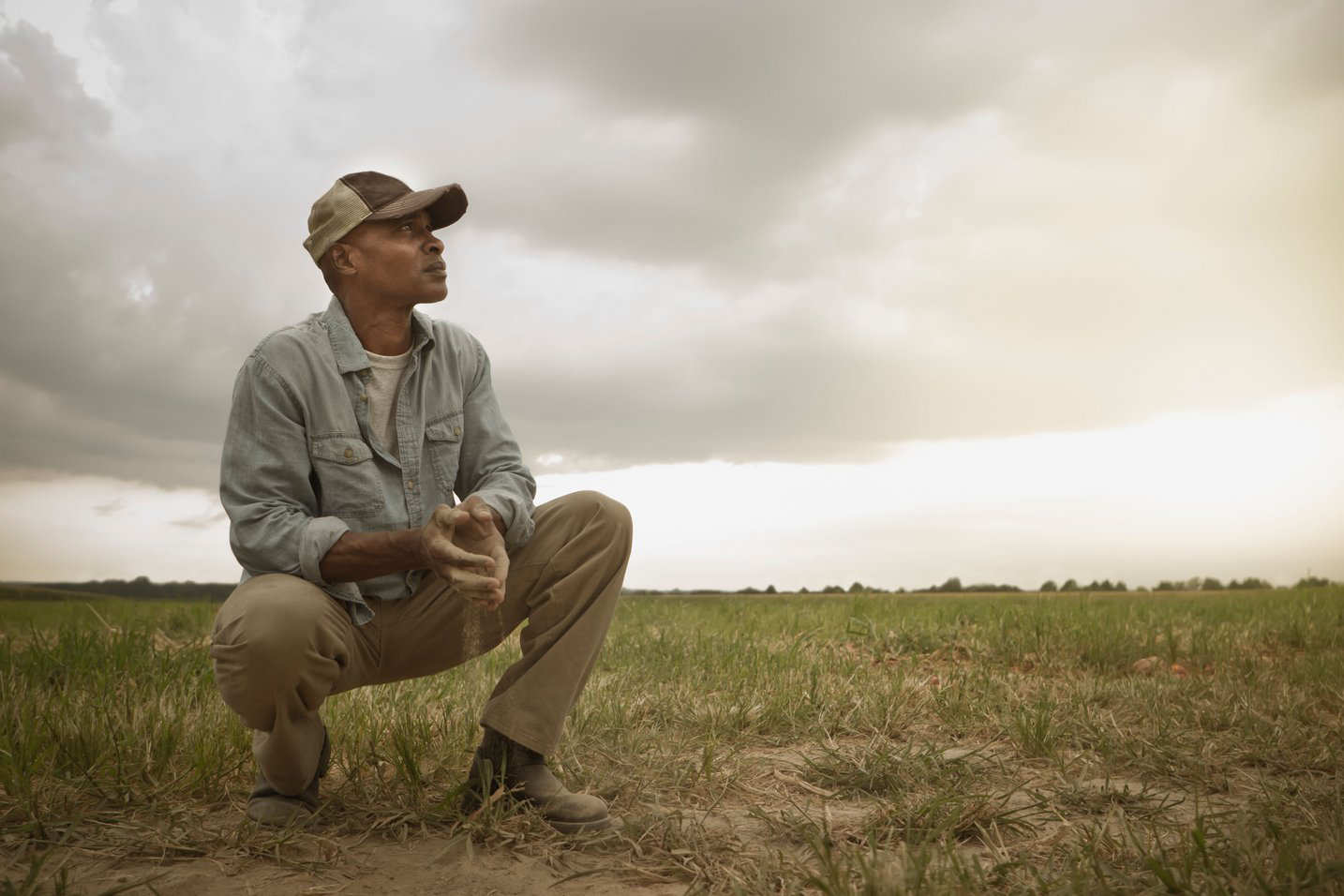
Pests and Diseases
It can feel like it’s a never-ending battle fighting against all the different pests and diseases that damage your plants.
Compaction
Layers of compacted earth result in soil erosion and they make it really tough for plant roots to penetrate deep into the soil profile.
Nutrient Deficiency
Soil fertility is a major problem around the world. This results in lower yields and food that is nutrient deficient.
Drought and Flooding
As soil structure and organic matter content are degraded over time, the water-holding capacity decreases and water is less able to infiltrate the soil.
Low Crop Yields
Many of us are experiencing diminishing crop yields despite the fact that we are pouring on more and more chemical fertilizer year after year.
Increasing Input Costs
For many farmers, the costs of chemical inputs seem to rise every year, making it harder and harder to earn a living.
Here are some of the benefits to the ENVIRONMENT of restoring the Soil Food Web:
Carbon Sequestration
Plants absorb carbon from the atmosphere during photosynthesis and they invest a substantial proportion of this into the soil (~40%) to feed microorganisms. This is the basis of the mechanism that pumps carbon into the world’s soils. It is possible that by regenerating the world’s soils, we may be able to halt climate change.
Protecting Insects & Plants
Recent studies have shown that the world’s insect populations have been declining by around 25% every decade for the last 30 years! Bird populations are also plummeting, and other animals are being affected too. The major causes have been identified as habitat destruction and the use of pesticides.
Clean Rivers & Oceans
Typically only about 40% of the inorganic fertilizers, applied by conventional farmers, are absorbed by plants. The rest pollutes our air, rivers, lakes and oceans, causing major damage to those ecosystems and to the world’s oceans. With the Soil Food Web in place and the use of regenerative practices, inorganic fertilizers are not required.
Prevent Soil Erosion
The earth’s topsoils are being eroded at an alarming rate. The UN has estimated that we only have 60 years left before they are completely depleted. The Soil Food Web is nature’s way of building the structure that prevents soils from being washed-away by heavy rain or blown away by the wind. Intensive plowing and the use of chemicals destroys this structure, leaving the soil vulnerable to erosion.
Turn your World around – with the Kickstart Your Soil Package
Wait! This crisis can be averted by regenerating your soils and working in harmony with nature.
Which is why we created our Kickstart Your Soil Package training program – a course designed for those who grow plants, food, and pastures, as well as those who want to teach and advise as a consultant.
These globally recognized and widely acclaimed courses were designed to assist anyone who wants to improve their soils, grow healthier plants without chemical inputs, and improve human health and the health of our one and only planet.
The Kickstart Your Soil Package is a unique combination of courses that will teach you about the theory and science behind the Soil Food Web Approach, “Nature’s Soil Operating System,” as well as provide hands-on training in making biologically complete compost and using the microscope to identify and quantify the biology in the soil.
Soil Biology
You’ll start with our Foundation Courses, where you’ll learn about the beneficial microbes that were once found in soils all over the world.
Microscopy
Work one-on-one with a Soil Food Web School mentor to develop your skills with the microscope to the high standard required for certification.
Compost
Make your own Biological Compost using Dr. Elaine’s close-control composting method that enables beneficial microbes to multiply rapidly.
Here’s how the course works
A comprehensive and life-affirming, step-by-step program for successful soil regeneration.
Foundation Course
FC1: Introduction to the Soil Food Web
FC2: Making BioComplete™ Compost
FC3: Making BioComplete™ Extracts and Teas
FC4: Microscopy
For those interested in learning to implement the Soil Food Web Approach, but not becoming a Soil Food Web Consultant, we have developed the Grower Training Program for you.
Stage 1
Grower Training Program (GTP)
– Certified Lab-tech Program
– BioCompIete™ Compost Practicum
For those who want to become a Soil Food Web Consultant, or are looking for a deeper understanding of regenerative agriculture, the Consultant Training Program is the recommended track for you.
Stage 1
Consultant Training Program (CTP)
– Certified Lab-tech Program
– BioCompIete™ Compost Practicum
Here’s how the course works
A comprehensive and life-affirming, step-by-step program for successful soil regeneration.
Foundation Course
FC1: Introduction to the Soil Food Web
FC2: Making BioComplete™ Compost
FC3: Making BioComplete™ Extracts and Teas
FC4: Microscopy
Option 1
For those interested in learning to implement the Soil Food Web Approach, but not becoming a Soil Food Web Consultant, we have developed the Grower Training Program for you.
Stage 1
Grower Training Program (GTP)
– Certified Lab-tech Program
– BioCompIete™ Compost Practicum
Option 2
For those who want to become a Soil Food Web Consultant, or are looking for a deeper understanding of regenerative agriculture, the Consultant Training Program is the recommended track for you.
Stage 1
Consultant Training Program (CTP)
– Certified Lab-tech Program
– BioCompIete™ Compost Practicum
Why Reintroduce the Soil Food Web to Your Soils?
All plants form symbiotic relationships with microorganisms in the soil. Our persistent disturbance of the soil has destroyed the balance that existed in the soil ecosystem and the symbiotic relationship between soil microorganisms and plants. Fortunately, the Soil Food Web Approach can re-establish those essential microbe communities in your soils. We will teach you how to harvest microbes from your local area, multiply the aerobic microbes using Dr. Elaine’s close-control composting system, and then re-introduce the microbes to the soil. When the Soil Food Web Approach is combined with regenerative agricultural techniques like no till, the soil biome will be protected and the soil food web and your plants will have the opportunity to thrive.

Not a Farmer? Not a Problem!
The SFW Approach is for anyone who wants to regenerate their soils or the soils in their communities! Farmers, ranchers, growers, backyard gardeners, landscapers, land stewards, restoration specialists, and so many others benefit from SFW courses and the innumerable applications of the SFW Approach.
Some of our students generously support and serve their communities by sharing their knowledge and experience with community groups, gardeners, kids, and those who need to or want to grow their own food. These “givers” among us build community, friendships, and food security!
Watch this inspiring video from one of our Veterans! If you are a Veteran, please contact us to learn how we assist those who serve.
Begin Your Journey to Become a SFW Consultant!
Become a SFW Consultant so that you can share the knowledge about how working in harmony with nature can be a more cost-effective and environmentally friendly way to grow crops; maintain golf courses, parks, and sports fields; maintain urban and suburban landscapes; grow gardens and herbs, restore degraded lands, and so much more!
Many of our students have discovered a new career path and now work full time as SFW Consultants!
The Kickstart Your Soil Package contains the first 2 of the 4 courses that are needed to become a SFW Consultant! Learn more…
Case Studies
Whether you’re growing on a small scale or large, alfalfa or almonds, United States or United Emirates, the Soil Food Web Approach simply works. Watch these short case studies to hear more…
Consultant Case Studies
Corn & Soy 10,000 Acres
York Farms (USA)
York Farms is a 10,000 acre multi-generational family farm in Illinois growing soy and corn, servicing 100,000 acres of surrounding farms. Todd reported that as the chemical and fertilizer costs went down, his client saved more than $1,000,000 in the first three years.
Potatoes, Onions, Greens…
Market Garden Makeover (Sweden)
Soil Food Web Consultant, Renald Flores, reported an average increase in yields of 72% across 8 different types of crops on this market garden near Stockholm, Sweden.
172 Acre Park Project
Governor’s Island, NYC (USA)
Dr. Elaine & Todd Harrington discuss Todd’s work at Governor’s Island in the heart of New York Harbor. A 172 Acre Park Project creating a public parkland from concrete and bare ground.
Grapes, Cannabis, Turmeric
Ecuador, India, Peru, & USA
Terraforma saved one client $600 per acre and increased yields for another client by 146%. In this amazing webinar, Soil Food Web Consultant Miles Sorel presented case studies on projects from 4 different countries.
Farmer Case Studies
Adam York
10,000 acres Illinois, USA
York Farms is a 10,000 acre multi-generational family farm in Illinois growing soy and corn, servicing 100,000 acres of surrounding farms. Adam York reported saving over $1M by reducing chemical inputs in the first 3 years.
Jenn Sirp
¼ acre California, USA
Jenn’s farm was experiencing problems with fertility, compaction and disease. Working with Soil Food Web Consultant, Brain Vagg, has helped her to make great improvements in year 1.
Farmer, Roberto Silva Rodriguez
Piura, Peru
In this awesome film you can hear how Roberto has collaborated with Soil Food Web Consultant, Miles Sorel, reported yield increases of over 100% in year 1, and nearly 100% in year 2.
Cory Miller
3,000 acres Montana, USA
Cory operates Grass Valley Farms where he produces high quality hay, beef, eggs and honey. He’s seen multiple improvements each year, since he stared working with Consultant Casey Ernst.
The Soil Food Web Helps Farmers Increase Yields the Natural Way
We offer farmers a way to make a smooth transition to Regenerative Ag. Working in harmony with nature can be a more cost-effective way to grow crops. You can Kickstart Your Soil health program in MONTHS! How? By restoring the microbial community – also known as The Soil Food Web – to its natural state. Too good to be true? Click here to view some amazing case studies.
Testimonials
Meet some of the Soil Food Web Professionals who are out there making the change happen in their communities.
Soil Food Web Consultant
Oregon
After a successful career as a program manager in IT, Brian decided to follow his passion for the environment and healthy food. He now runs a successful consultancy, Sprouting Soil, out of Oregon. His clients include vineyards, orchards. and cannabis growers.
Soil Food Web Consultant
Connecticut
Todd was one of the first to ever train with Dr. Elaine Ingham. He’s built a successful business, producing Biological Soil Amendments and providing consultancy services. Todd’s company, Harrington’s Organics, employs 7 people and has numerous clients around the US and beyond.
Soil Food Web Consultants & Biological Compost Producers
California
From backgrounds in massage therapy and permaculture, Keisha Wheeler and Casey Ernst have built Catalyst BioAmendments, a successful Compost production company, based in Nevada City, California. They make some of the best compost in the state and are expanding rapidly to meet demand.
How It Works
Please take a look at these animations that explain how natural soils function.

Course Instructor
Dr. Elaine Ingham
Dr. Elaine Ingham is recognized as one of the foremost soil biologist in the world. For nearly four decades, she has been conducting research and expanding on our understanding of her discovery, the Soil Food Web Approach, also known as “Nature’s Soil Operating System.”
You Have Questions, We Have Answers
Will it work in my region?
Dr. Elaine has used the Soil Food Web Approach to regenerate soils on 6 continents. We now have students in over 120 countries and so far we haven’t found anywhere in the world where the soil ecosystem cannot be restored. (Antarctica is the obvious exception since the soil isn’t accessible there!)
Will it work on all crops and plants?
All plants form symbiotic relationships with microorganisms in the soil. That’s because when plants first evolved on the land, around 500 million years ago, the world’s soils were already populated with microbes. So these relationships have been there from the beginning. Our persistent disturbance of the soil, with the plow and more recently with chemicals, has destroyed the balance that existed in the soil ecosystem. Fortunately, we can put that right very rapidly with the Soil Food Web Approach, which is all about harvesting microbes from the local area, multiplying the aerobic microbes using Dr. Elaine’s close-control composting system, and then re-introducing them to the soil. With regenerative agricultural techniques like no till, the soil biome is protected and so repeated treatments may not be necessary.
Will it work at a large and/or small scale?
The short answer is ‘yes’. Dr. Elaine has worked on large scale projects that cover thousands of acres. She has also worked on some smaller projects too. BioComplete™ Compost and liquid amendments can be produced at large scale, using industrial equipment and also at very small scale, using hand tools and home-made brewing kits. Of course, application at large scale is very different than it would be in someone’s garden, but the good news is that conventional spraying equipment and irrigation systems can be used to deliver BioComplete™ Liquid Amendments to the soil, with some very minor modifications.
Do I need a science background?
Our training programs are designed for people with no scientific or agricultural background. Dr. Elaine has an informal teaching style that makes the lectures easy to follow. You’ll have access to the Student Forum and monthly live Q&A sessions where your questions will be answered.
Will the program fit my schedule?
This is a flexible online program, so you can work at your own pace. The Foundation Courses can be completed in as little as 4 weeks or in as long as 12 months. Stage 1 of the CTP/GTP is also designed to be very flexible. You can book sessions with your mentor when you feel you need support, and your mentor will be on hand to answer your emails. The program is designed for people with busy schedules.
Foundation Courses
What will I learn?
- About the various groups of microorganisms that make up a fully-functional soil ecosystem, and how their interactions result in a constant flow of nutrients being made available to plants and trees.
- How plants and trees nurture the community of microorganisms in their root zones. Plants feed specific groups of microorganisms so that those microorganisms and the nutrients they excrete are present in the root zone; this way, plants are able to harvest the particular nutrients they need, when they need them. This results in vibrant, healthy plants and in super-nutritious fruits and vegetables.
- That there is an abundance of nutrients locked-away in the crystalline structure of the mineral particles that make-up all of the world’s soils – from the desert sands to prairies and forests, there is no soil on earth that is incapable of providing all the nutrients that plants require. The missing-link is the community of soil microorganisms that can access these nutrients and make them available to plants.
- How beneficial soil microorganisms prevent diseases and pests from attacking plants. By occupying infection sites all over the roots and all of the above-ground parts of the plant, beneficial microorganisms make it impossible for the ‘bad-guys’ to get access to the plant. In addition to this, beneficial microorganisms create aerobic conditions in which the ‘bad-guys’ (which are mostly anaerobes) cannot survive.
- That beneficial microorganisms build structure in the soil, thus preventing soil erosion whilst simultaneously improving water holding capacity and oxygenation as well as moderating infiltration rates. Having structure in the soil enables roots to go much deeper into the ground, where they can access greater quantities of water and nutrients.
- About the way in which the presence of beneficial fungi results in diminished weed pressure. Have you ever noticed how there are very few weeds to be found in a forest?
- How introducing the Soil Food Web can drastically increase the ability of a soil to capture and store carbon from the atmosphere.
- The history of agriculture and how certain practices have resulted in the destruction of the soil food web in so many of the world’s soils.
- Basic plant physiology and biochemistry. The course covers the basics that are required in order for you to be able to fully understand the processes that are taking place in a living, functional soil.
- About how the soil food web has been reintroduced to over 5 Million acres worldwide. You will review a number of case-studies that demonstrate the effectiveness of the soil food web and how it can be implemented on projects of any scale, any crop and in any climate.
- How to make and apply BioComplete™ compost and liquids.
- About the different kinds of equipment you can use to make and apply the amendments you make.
- The farming practices that are harmful to soil biology and what farmers can do to avoid them.
- How to quantify the different organism groups in a soil, compost or liquid sample, using the compound microscope. This will enable you to measure results as they happen underground and before they happen above ground.
What's included in FC1?
In Foundation Course 1 you will learn:
- About the damage that has been done to soils all over the world.
- How Regenerative Agriculture is the soil-ution and how you can rapidly regenerate your soils with the Soil Food Web Approach.
- How the Soil Food Web Approach can be adopted on any scale and in almost any environment, with a multitude of crops.
- About the 4 major groups of Beneficial Microorganisms that are needed to restore ecosystem functions to your soil.
- How Beneficial Microbes work in harmony with your crops to nourish and protect them.
- How benefits such as increased yields, reduced erosion, and reduced pest, disease, and weed pressure can be achieved.
- About several projects from around the world that Dr. Elaine Ingham has worked on personally.
- About some of the management practices you can adopt to ensure that the biology in your soils is not compromised.
- How soil structure is created by beneficial microbes, improving water infiltration in clay soils and better water retention in sandy soils. And how good structure enables plants and beneficial microbes to penetrate deep into the soil profile, improving plant health.
- How beneficial microbes access the abundance of nutrients stored in the parent material (think sand and clay particles) and how this is then made available to your plants.
- How plants influence the soil biome, by releasing sugary exudates that feed specific groups of beneficial microbes, in return for nutrients.
- How having a balanced soil biome can result in great benefits, such as Weed Suppression and Increased Carbon or Organic Matter content.
What's included in FC2?
In Foundation Course 2 you will learn:
- About the different definitions of compost and why we consider it as a means of multiplying beneficial microbes instead of just a way of delivering nutrients to the soil.
- How to make your own Biological Compost, using Dr. Elaine’s close-control composting method that enables beneficial microbes to multiply rapidly, while suppressing detrimental microbes.
- Techniques that can be used to balance the biology in your compost, ensuring that the 4 main groups of microbes are present.
- How to apply Biological Compost to your soils so that beneficial microbes can interact with your plants in the root zone, offering nutrition and protection.
- About the various types of methods and equipment that can be used to produce Biological Compost, depending on scale. This includes vermicompost and hot-composting.
What's included in FC3?
In Foundation Course 3 you will learn:
- How to produce Biological Extracts and Teas from your Biological Compost, using different types of equipment depending on the scale you are operating at.
- About the uses and application methods of Biological Extracts and Teas
- How to apply Biological Liquid Amendments to your soils using different equipment, depending on the scale of your project. And how you can use conventional spraying equipment with some minor modifications.
What's included in FC4?
In Foundation Course 4 you will learn:
- How to correctly set-up and use a compound microscope.
- About the biological morphology of the 4 major groups of beneficial soil microorganisms.
- How to identify and quantify the key groups of beneficial microbes that all soils need in order to be fully functional, using the compound microscope. This will enable you to conduct your own soil biology assessments on-farm.
- How to process and interpret data.
- How to recognize microarthropods, algae, pollen and other objects in your soil.
Are the courses all online?
Yes, the Foundation Courses are 100% online, theory-based courses. You will watch a series of lectures and take a short quiz after each one.
Are the courses self paced?
Yes, they are. You’ll be able to login at any time, watch a lecture as many times as you like, then prepare for the short multiple-choice quiz that follows each lecture.
When can I start?
You can start as soon as you sign up.
Can I see a breakdown of the Foundation Course Lectures?
There are 63 lectures total in all four Foundation Courses. To see the full breakdown of the Foundation Courses and the lecture titles, please click here.
How much do they cost?
The regular price for the 4 Foundation Courses (FCs) is $5,000. With the October 2023 offer you pay $3,920 for the FCs and you also get either Stage 1 of the Consultant Training Program or the Grower Training Program FREE!
How long will it take me to complete them?
Students typically require about 150 hours to complete the Foundation Courses at a reasonable pace.
We expect that a student can complete the Foundation Courses in 4 weeks, if studying full-time. The maximum time allowed to complete the Foundation Courses is 12 months. You can apply for an extension if you need more time to complete the Foundation Courses.
Do I need any qualifications to start the courses?
The courses are designed for people with no background in the field.
Will this course enable me to find employment as a Soil Food Web Consultant?
Students wishing to pursue a career as a Soil Food Web Consultant will need to successfully complete the Foundation Courses and then continue on with the Consultant Training Program. Students who successfully complete all 3 Stages of the Consultant Training Program are qualified as Soil Food Web Consultants.
What do graduates do when they have completed their training?
Some become Soil Food Web Consultants who help farmers, ranchers, and growers to transition away from using chemicals to a biological/regenerative farming technique. Others focus on producing great compost, which they then can sell to soil consultants or direct to farmers. And others become Soil Food Web Lab-Technicians who perform biological assessments for farmers and growers, or for Soil Food Web Consultants.
Consultant Training Program (CTP)
What's included in CTP Stage 1?
What You Will Learn
- You’ll be assigned to one of our highly trained Mentors who will guide you as you work towards mastering the art of making BioComplete™ Compost using the techniques you have studied in the Foundation Courses.
- You will also work 1-on-1 with your Mentor to develop your microscopy skills to the required standard to become a Certified Soil Food Web Lab-Tech.
- You’ll learn from the experience of others as your Mentor will be able to advise you on common mistakes to avoid, when making your compost.
What’s Included
- 26 hours of total Mentor Time dedicated to helping you to make your own Biological Compost and Master the Microscope.
- Free listing in the directory of Certified Soil Food Web Lab-Techs, once you pass the Microscopy Proficiency Assessment (MPA).
- The Guide to Making Small Scale BioComplete™ Compost manual.
- The Certified Lab-Tech Program (CLP) Course Manual.
- The Launch Your Lab Guidebook.
How long will it take to complete Stage 1 of the Consultant Training Program?
Students typically need to make at least 6 compost piles before they can achieve the required standards for passing the compost practicum. If you have the resources, you can make multiple piles, with varying recipes, simultaneously, to save time. Each pile will require up to 28 days to complete, once built. A reasonable time-frame for the compost practicum is 3-12 months. Some students may take longer.
How long will it take to complete all 3 stages of the Consultant Training Program?
The amount of time required depends on your other commitments. Students are expected to complete the Consultant Training Program within 2 years. The maximum allowable time for completion is 3 years after which your enrollment will expire. This policy is designed to help students to remain focused and motivated. You can of course apply for an extension if there are extenuating circumstances. Below is a breakdown of the time needed to complete each stage of the Consultant Training Program:
Consultant Training Program Stage 1 – The BioComplete™ Compost Practicum
Students typically need to make at least 6 compost piles before they can achieve the required standards for passing the compost practicum. If you have the resources, you can make multiple piles, with varying recipes, simultaneously, to save time. Each pile will require up to 28 days to complete, once built. A reasonable time-frame for the compost practicum is 3-12 months. Some students may take longer.
Consultant Training Program Stage 2 – The BioComplete™ Liquid Practicum
Students can expect to complete Stage 2 within 3 months, or less if they are well prepared and focused.
Consultant Training Program Stage 3 – The Final Project
The duration of the Final Project should be around one growing season +/-1 month. You should allow some time prior to the growing season for preparation; several hours per month, during the growing season, for data collection; and several days of work at the end of the growing season for data analysis and the write-up of your project.
How do I become a Soil Food Web Consultant?
To become a Certified Soil Food Web Consultant, you must first successfully complete the Foundation Courses with at least a 90% average (if you score less than 90% then you may still be considered for entry, but entry is not guaranteed) and then successfully complete all 3 stages of the Consultant Training Program (CTP).
Do I need any qualifications to become a Soil Food Web Consultant?
The courses are designed for people with no background in the field.
Will I need to buy any equipment to complete the Consultant Training Program?
You will need to purchase several pieces of equipment in order to complete each stage. The precise budget will depend on the size of your final project. Your mentor will be able to advise you on equipment selection. The minimum requirements are likely to cost around $1,000.
How will I find work once I have been certified as a Soil Food Web Consultant?
There are several possibilities: you may be offered employment by one of the organizations that is associated with Dr. Elaine’s™ Soil Food Web School; you may decide to offer your services to farmers in the area where you live, establishing your own business; the Soil Food Web School is often approached by farmers looking for a referral to a consultant and we refer these farmers to the Consultants Page on our website, where certified Soil Food Web Consultants are listed.
Can I complete the practical training at the Soil Food Web School?
We hope to hold 1-2 in-person practical training workshops in 2024. These workshops are NOT a substitute for completing the CTP/GTP; students still will need to complete all 3 Stages of the CTP/GTP. They are designed to help CTP/GTP students accelerate their learning process by seeing, touching, and doing all the things they need to master in the CTP/GTP. This should help them to avoid common pitfalls and save time and effort.
Is the Certified Lab-Tech Program included in the Consultants Training Program?
Yes it is. Consultant Training Program students are required to complete the Certified Lab-Tech Program in Stage 1 of the Consultant Training Program. Click here for more info.
Will I be certified as a Soil Food Web Consultant after Consultant Training Program Stage 1?
No. To become a Consultant, you will need to enroll in and successfully complete Stage 2 and Stage 3 of the Consultant Training Program as well. You will become a Certified Lab-Tech after completing Stage 1 of the Consultant Training Program, provided you pass all portions of the Microscope Proficiency Assessment. You will also be qualified to make biologically active compost after successful completion of Stage 1.
Can I use the trademarked term BioCompleteTM?
The term BioCompleteTM is used to refer to compost and liquid amendments that meet the minimum biological requirements defined by Dr Elaine Ingham as being required in order for the amendment to be effective in restoring the soil biome, when correctly applied. You will be trained how to make these amendments in the Consultant Training Program. Once you have successfully completed the Consultant Training Program, you can apply to the Soil Food Web School for a license to use the term in association with your products, but the term can only be used by individuals and corporations that have a license agreement in place. Licensees will be required to meet stringent quality assurance requirements.
Do I get to do the whole Consultant Training Program, when I sign up for the Kickstart Your Soil Package?
No. When buying the Kickstart Your Soil Package you only get free access to Stage 1 of the Consultant Training Program. If you enjoy Stage 1 and want to learn more, then you can buy the whole Consultant Training Program, which includes Stages 2 and 3.
Can I become a Soil Food Web Consultant if I buy and complete the Kickstart Your Soil Package?
No, because the Kickstart Your Soil Package only gives you access to Stage 1 of the Consultant Training Program. As mentioned in the previous question, to become a Soil Food Web Consultant you need to have successfully completed all 3 stages of the Consultant Training Program (CTP).
Grower Training Program (GTP)
What's included in GTP Stage 1?
What You Will Learn
- You’ll be assigned to one of our highly trained Mentors who will guide you as you work towards mastering the art of making BioComplete™ Compost using the techniques you have studied in the Foundation Courses.
- You will also work 1-on-1 with your Mentor to develop your microscopy skills to the required standard to become a Certified Soil Food Web Lab-Tech.
- You’ll learn from the experience of others as your Mentor will be able to advise you on common mistakes to avoid, when making your compost.
What’s Included
- 26 hours of total Mentor Time dedicated to helping you to make your own Biological Compost and Master the Microscope.
- Free listing in the directory of Certified Soil Food Web Lab-Techs, once you pass the Microscopy Proficiency Assessment (MPA).
- The Guide to Making Small Scale BioComplete™ Compost manual.
- The Certified Lab-Tech Program (CLP) Course Manual.
- The Launch Your Lab Guidebook.
How long will it take to complete Stage 1 of the GTP?
Students typically need to make at least 6 compost piles before they can achieve the required standards for passing the compost practicum. If you have the resources, you can make multiple piles, with varying recipes, simultaneously, to save time. Each pile will require up to 28 days to complete, once built. A reasonable time-frame for the compost practicum is 3-12 months. Some students may take longer.
How long will it take to complete all 3 stages of the GTP?
The amount of time required depends on your other commitments. Students are expected to complete the GTP within 2 years. The maximum allowable time for completion is 3 years after which your enrollment will expire. This policy is designed to help students to remain focused and motivated. You can of course apply for an extension if there are extenuating circumstances. Below is a breakdown of the time needed to complete each stage of the GTP:
GTP Stage 1 – The BioComplete™ Compost Practicum
Students typically need to make at least 6 compost piles before they can achieve the required standards for passing the compost practicum. If you have the resources, you can make multiple piles, with varying recipes, simultaneously, to save time. Each pile will require up to 28 days to complete, once built. A reasonable time-frame for the compost practicum is 3-12 months. Some students may take longer.
GTP Stage 2 – The BioComplete™ Liquid Practicum
Students can expect to complete Stage 2 within 3 months, or less if they are well prepared and focused.
GTP Stage 3 – Implementation
The duration of the Final Project should be around one growing season +/-1 month. You should allow some time prior to the growing season for preparation; several hours per month, during the growing season, for data collection; and several days of work at the end of the growing season for data analysis and the write-up of your project.
Do I need any qualifications to join the Grower Training Program?
The courses are designed for people who are either Farmers, Ranchers, or Growers. While you don’t need a background in science or any other qualifications, you will need access to some land and other resources. If you are considering taking this course before you purchase land, that’s ok, so long as you have some space and resources to make your compost (and to practice microscopy) in Stage 1, and to make your liquid amendments in Stage 2. You will need the land by the time you reach Stage 3 for implementation.
Will I need to buy any equipment to complete the GTP?
You will need to purchase several pieces of equipment in order to complete each stage. The precise budget will depend on the size of your operation. Your mentor will be able to advise you on equipment selection. The minimum requirements are likely to cost at least $1,000. You may be able to repurpose some of your existing equipment e.g. spraying rigs for the application of liquid biological inoculate.
Can I complete the practical training at the Soil Food Web School?
We hope to hold 1-2 in-person practical training workshops in 2024. These workshops are NOT a substitute for completing the CTP/GTP; students still will need to complete all 3 Stages of the CTP/GTP. They are designed to help CTP/GTP students accelerate their learning process by seeing, touching, and doing all the things they need to master in the CTP/GTP. This should help them to avoid common pitfalls and save time and effort.
Is the Certified Lab-Tech Program included in the Grower Training Program?
Yes it is. GTP students are required to complete the CLP in Stage 1 of the GTP. Click here for more info.
Can I get certified as a Consultant if I am in the Grower Training Program (GTP)?
The GTP is intended for farmers, growers, and ranchers who do not wish to become certified consultants but if you change your mind during your program (before you enter Stage 3), you can transfer from the GTP to the Consultant Training Program (CTP) and complete Stage 3 of the CTP. This will enable you to be certified as a Soil Food Web Consultant.
Can I use the trademarked term BioComplete™?
The term BioComplete™ is used to refer to compost and liquid amendments that meet the minimum biological requirements defined by Dr. Elaine Ingham as being required in order for the amendment to be effective in restoring the soil biome, when correctly applied. You will be trained how to make these amendments in the Grower Training Program (GTP). Once you have successfully completed the GTP, you can apply to the Soil Food Web School for a license to use the term in association with your products, but the term can only be used by individuals and corporations that have a license agreement in place. Licensees will be required to meet stringent quality assurance requirements.
Do I get to do the whole Grower Training Program, when I sign up for the Kickstart Your Soil Package?
No. When buying the Kickstart Your Soil Package you only get free access to Stage 1 of the Grower Training Program. If you enjoy Stage 1 and want to learn more, then you can buy the whole Grower Training Program, which includes Stages 2 and 3.

